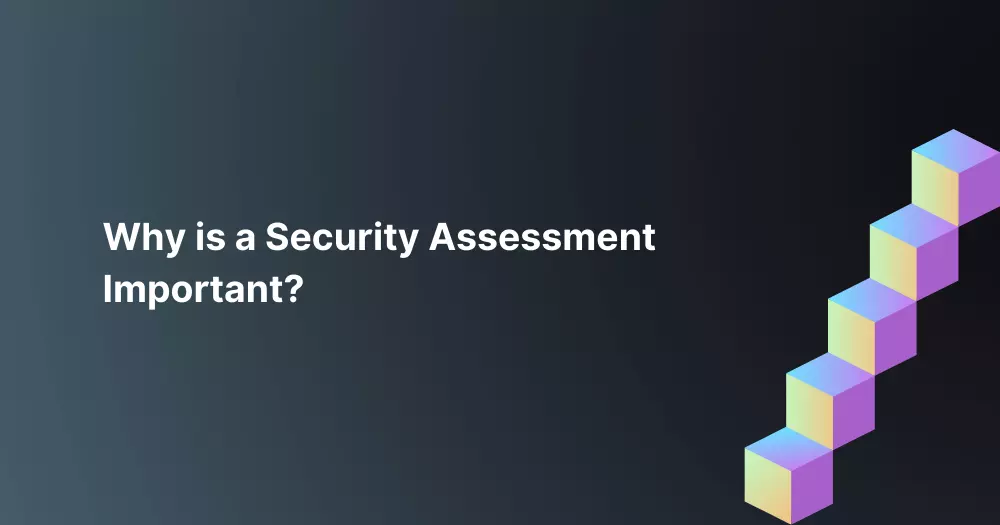
With the alarming number of cyberattacks happening daily and the report that 69% of business owners fear that a successful cyber-attack could put their SMB out of business, many businesses still neglect completing a security assessment. According to a Trustwave report, 33% of organizations expose themselves by not completing risk assessments.
By not completing a security assessment, organizations are leaving themselves vulnerable to attack. Organizations that do not perform a security assessment could be putting their confidential data at risk, potentially exposing it to unauthorized users or competitors. Additionally, inadequate security measures could lead to legal and financial repercussions if the organization is found liable for any data breaches that occur as a result of their negligence. Lastly, poor security measures can also lead to decreased trust from customers and business partners, leading to a damaged reputation that is hard to repair.
A security assessment is an examination of a system’s performance in protecting itself from unauthorized access and malicious activity. It helps to identify any weaknesses or vulnerabilities in the system that may be exploited by attackers so that appropriate action can be taken to mitigate the risks. Security assessments should be conducted regularly to ensure that an organization’s security posture is up-to-date and in line with current industry best practices.
Security assessments are an important part of any business, regardless of size. Security assessments help identify potential security risks and weaknesses in a company’s infrastructure, networks, applications, data, and personnel. Security assessments can be used to develop a comprehensive security policy that is tailored to the needs of the organization and protect against potential threats. This article will discuss why security assessments are essential for businesses today.
Security assessments are necessary because they provide a comprehensive analysis of the current state of the business’s security posture. They provide insights into potential threats and vulnerabilities that may have been overlooked or missed during normal operations. This should include both internal resources as well as external ones, such as networks, servers, databases, applications, and users.
These assessments can also be used to assess the effectiveness of existing security measures as well as identify areas where more stringent security protocols need to be implemented in order to ensure maximum protection from cyberattacks and other malicious activity.
Once the organization’s current security measures have been assessed, any potential risks or vulnerabilities should be analyzed in depth. This includes looking for weaknesses in the system, such as unpatched software or out-of-date encryption algorithms, as well as identifying areas of high risk, such as user accounts with weak passwords or systems that are accessible over unsecured networks.
Security assessments can also be used to develop a comprehensive security policy tailored specifically to the needs of an organization. This should include measures such as authentication protocols, encryption standards, and access control systems that are designed to protect valuable data and resources from malicious activity. Additionally, the security policy should be regularly updated in order to keep up with the latest industry best practices and technologies.
They can provide guidance on how best to respond when an incident does occur, helping reduce damage and prevent further incidents from occurring in the future. Companies can stay one step ahead of potential attackers and maintain their digital assets with minimal disruption or damage.
Another benefit of security assessment is its ability to help organizations understand their compliance requirements related to data protection regulations such as GDPR or HIPAA. These assessments allow organizations to identify any areas where they may not be compliant with relevant regulations and take steps toward becoming compliant before penalties are assessed by regulatory bodies. This not only helps reduce financial penalties but also helps ensure that customers’ data is always kept secure.
By using a comprehensive security assessment, businesses can stay secure and compliant with relevant regulations, helping to protect their data and resources from malicious activity. Additionally, these assessments can help businesses identify gaps in their current security measures and prioritize their security efforts accordingly. Security assessments are essential for any organization that wants to remain secure and compliant in the digital age.
BlackPoint IT offers a free security assessment to help organizations identify their potential risks and vulnerabilities and develop strategies for addressing them. With our security assessment, you can ensure your organization’s data and resources are kept safe from malicious parties. Contact us today!